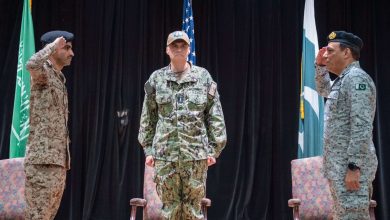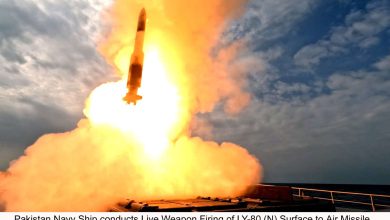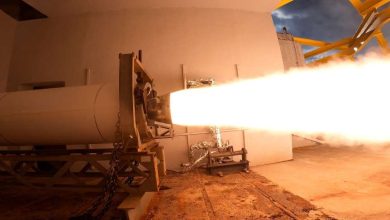
Raytheon Sets Sail on a Global Maritime Mission
Marty Kauchak*
This March 14, Alan Davis, the program manager for short-range defense innovations at Raytheon’s Missile Systems division, provided insights to SDArabia’s US correspondent, Marty Kauchak, regarding Raytheon’s accelerating efforts in the innovative Rolling Airframe Missile (RAM) Block 2 initiative and its increasing partnership with Abu Dhabi Shipbuilding Company (ADSB).
The RAM Block 2 signifies advancements in kinematics and RF receiver capabilities compared to the legacy Block 1/1A missile. The Block 1 series is utilized by the naval forces of eight nations, including the UAE.
In May 2015, the US Navy declared the initial operational readiness (IOR) for RAM Block 2.
This readiness allows Raytheon to commence production of the Block 2 missile at a modest initial production rate, enabling the industrial consortium behind Block 2 to tackle production challenges. “I predict we’ll transition to full-rate manufacturing by the fiscal year 2020,” Davis projected.
The memorandum of understanding between the US and German governments concerning RAM Block 2 promotes collaborative sharing of development costs for the missile, fostering a work-sharing arrangement between US and German industries. Consequently, Raytheon is partnering with the German enterprise RAMSYS on RAM Block 2. Davis remarked, “We generally leverage the same supplier network used for Block 1 in this program development.”
The Block 2 missile offers enhanced combat capabilities compared to the Block 1 series.
For example, this missile features a significant kinematic enhancement. Kinematics refers to the missile’s agility, enhancing its capacity to engage targets more rapidly and at greater ranges—outperforming the earlier Block 1. When asked to quantify the operational improvements of Block 2 compared to Block 1, the industry expert stated, “I can confirm we have over two and a half times the capability in terms of maneuverability and ‘end game effect’.”
Additionally, an upgraded RF receiver supports the detection of anti-ship missiles that utilize low probability of intercept technology.
Although the US and German governments are the prime Block 2 clients, other Block 1 users are being considered as potential Block 2 end users. Furthermore, “We are already observing interest from other clients throughout the Middle East, North Africa, Pacific Asia, and Europe for Block 2. Clearly, as the US government continues to deploy Block 2 and it reaches IOC, we expect allied nations will follow,” Davis stated.
The interest of a MENA navy in integrating Block 2 into its fleet comes as no surprise to Davis, given the ongoing instability in the region’s coastal zones. He pointed out, “Many prospective clients, especially in the Gulf states, are contemplating acquiring corvettes and various types of vessels to protect their coasts and boost regional stability. RAM provides a unique capability against anti-ship missiles, helicopters, aircraft, and surface vessels. Its standout feature is the ability to counter multiple threats simultaneously.” RAM’s defensive capabilities include engaging both subsonic and supersonic targets.
The comprehensive 2016 RAM testing protocol outlines US firings of over 70 missiles, utilizing a combination of Block 1 and 2 variants to ensure the effectiveness of the weapons family against various threats and conditions.
In a further development, Raytheon Missile Systems and Abu Dhabi Ship Building (ADSB) are now celebrating their tenth year of partnership, which began in 2006 with the integration of RAMs onto the UAE’s Baynunah-class vessels.
Raytheon collaborates with ADSB to install RAMs and launch systems, as well as Evolved SeaSparrow Missiles, onto the UAE’s Baynunah-class corvettes and other maritime craft.
Davis expressed that the collaboration is based on Raytheon’s dedication “to assist the Emiratis in the industrial development of the UAE,” and added, “Our partnership with ADSB has enabled us to ensure the navy is outfitted with some of the most advanced ship defense systems available.”
While ten years may seem extensive at first glance, the industry expert mentioned, “I believe we are merely at the inception of that partnership. Considering the potential shipbuilding projects they have outlined, we foresee a long-term relationship with ADSB. We will undoubtedly continue to support them and stand alongside them during their times of need, given the operations they are undertaking. Most importantly, we strive not only to ensure ADSB’s success but also to enhance the UAE Navy and its industrial foundation.”
SDArabia’s US correspondent









